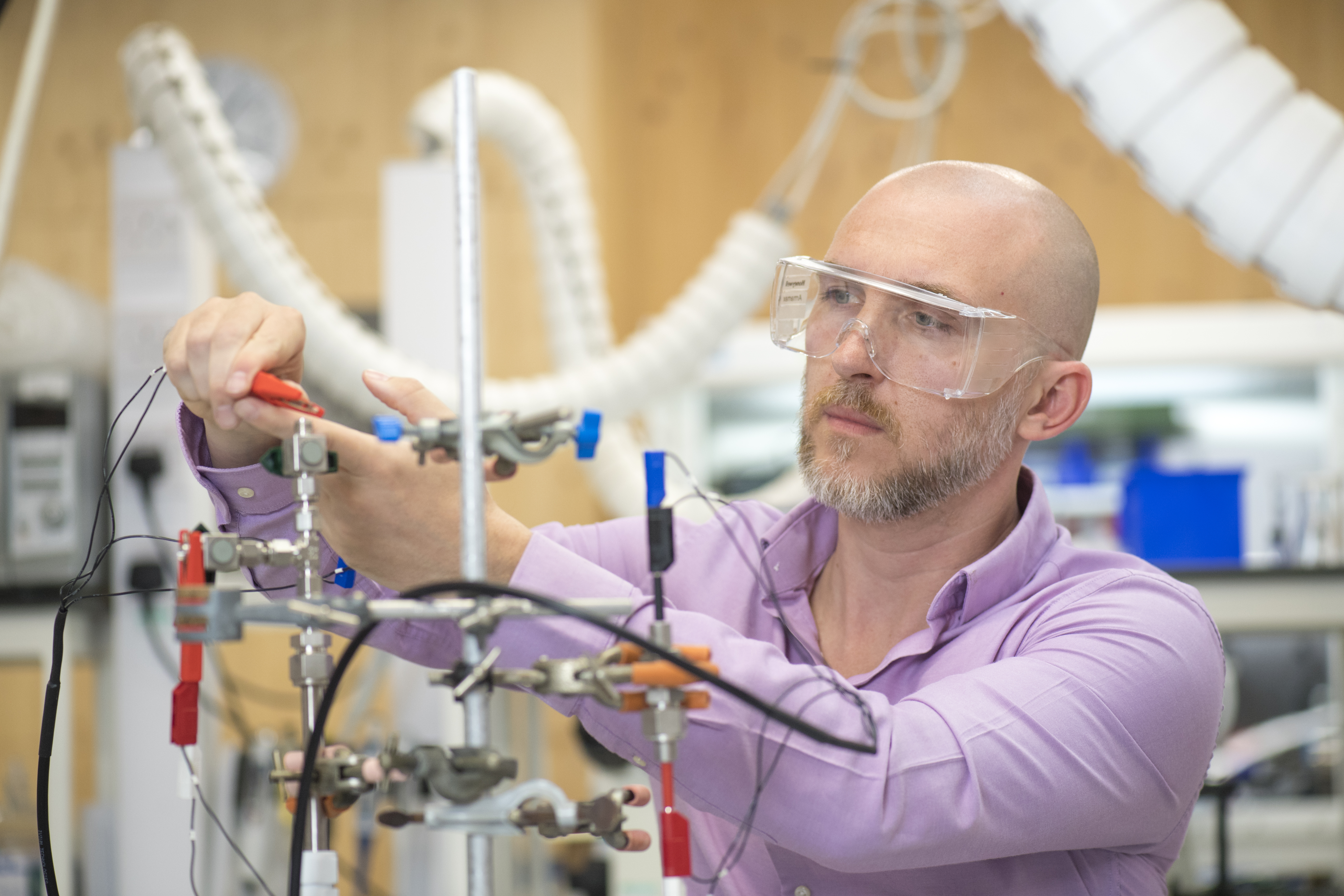
September 5, 2019, by Rob Ounsworth
£55m funding success: Nottingham Research Fellow to help power next generation of electric vehicles
Nottingham Research Fellow Dr Lee Johnson is one of the University’s early career researchers with special reason to celebrate its success in landing a share of £55 million from the Faraday Institution.
The University is one of five UK consortia sharing the funding, which is supporting research dedicated to improving the performance of electric vehicles.
The University now joins the Faraday Institution’s network of member universities, which aim to help deliver step changes in the development of battery chemistries, systems and manufacturing methods.
The new project will create two new positions for early career researchers in Nottingham, many of whom are expected to move into battery science and engineering from other fields.
The School of Chemistry will be conducting research into improving batteries used for transport and energy storage, examining the chemical composition of batteries to create the next generation for electric vehicles. The research will be carried out in the university’s world-class GSK Carbon Neutral Laboratory and is part of the Alternative cell chemistry beyond lithium ion–LiSTAR, Lithium-Sulfur Technology Accelerator which will be led by University College London and will be funded up to £7.8m.
Dr Johnson, of the School of Chemistry, a member of Propulsion Futures Beacon and co-founder of the Nottingham Applied Materials and Interfaces group, is one of the Nottingham-based co-investigators.
He said: “This project could revolutionise the battery market and will result in the training of a large number of battery scientists. The resulting injection of talent into the emerging battery industry will directly benefit the Midlands region, which already has a strong footprint in the electrification of the automotive sector.”
Nottingham will work alongside five other university partners and seven industrial partners to enable rapid improvements in Li-S technologies, which would take battery performance for automotive and other applications to a new level. Other consortia partners are Imperial College London, University of Cambridge, University of Oxford, University of Southampton and University of Surrey.
UK Research and Innovation Chief Executive, Professor Sir Mark Walport, said, “Bringing together experts across industry and academia, this exciting research will grow our understanding of battery chemistries and manufacturing methods, with the potential to significantly improve the UK’s ability to develop the high-performance electric vehicles of the future.”
No comments yet, fill out a comment to be the first

Leave a Reply